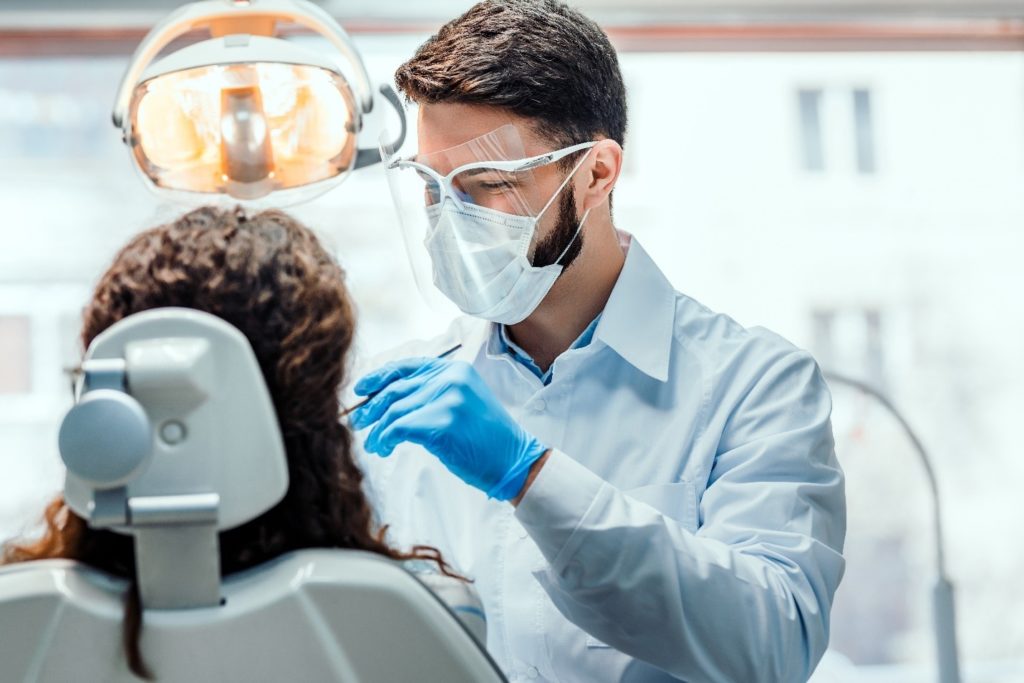What Your Dentist Wants You to Know About Oral Cancer
April 12, 2023

Every April is Oral Cancer Awareness Month, a time dedicated to raising awareness about the risk factors associated with oral cancer. Throughout April, we encourage you to seize the opportunity to educate yourself about this potentially devastating disease. By understanding the factors that contribute to oral cancer, you can take proactive steps to protect yourself and those you care about. Continue reading as we discuss the risk factors of oral cancer and how to minimize your chances of developing it.
What Is Oral Cancer?
Oral cancer is a type of cancer that can affect various parts of the oral cavity and oropharynx. It refers to the abnormal and uncontrolled growth of cells in the mouth, affecting the lips, tongue, cheeks, gums, and throat. Early detection and timely treatment are crucial for improving the prognosis and outcomes of oral cancer. Regular dental check-ups and self-examinations to detect any suspicious signs or symptoms are key to preventing further issues.
Common Oral Cancer Risk Factors
Regardless of background, oral cancer can impact anyone. Awareness of its specific risk factors is crucial. Understanding these common risks enables proactive measures for safeguarding your oral health. Key risk factors include:
- Age, with it being more prevalent among those over the age of 40
- A family history of oral or other kinds of cancer
- Sunlight exposure increases lip cancer risk
- A diet that’s low in fruits and veggies
- Other types of head or neck cancer
- HPV (Human Papillomavirus)
- A weakened immune system
- Heavy alcohol consumption
- Chronic poor oral hygiene
- Tobacco use
8 Tips for Minimizing Your Risk of Oral Cancer
Fortunately, there are ways that you can reduce your oral cancer risk, such as:
- Avoid tobacco and drinking excessively: Quit smoking nad limit alcohol consumption.
- Protect your lips from the sun: Shield your lips from UV rays with SPF 15+ lip balm to lower sun damage risk.
- Get regular dental checkups: Be sure to attend biannual dental visits to receive cleanings, exams, and oral cancer screenings.
- Eat a healthy diet: Be cautious of consuming too many sugary, acidic, or starchy foods and drinks. Opt for a diet rich in fruits, veggies, dairy, nuts, lean meats, and fish.
- Know the signs and symptoms: Monitor your mouth for changes like sores, lumps, or patches. See your dentist if anything unusual appears.
- Maintain optimal oral health: Brush twice daily for two minutes, floss nightly, and use antibacterial mouthwash.
- Lead a healthy lifestyle: Exercise boosts immunity, aiding in your oral health.
- Drink plenty of water: Water maintains oral hygiene by removing food particles, bacteria, and stimulating saliva production, keeping the mouth moisturized.
About the Practice
Third Street Dental provides a variety of restorative, cosmetic, and preventive treatments for healthy, bright, and beautiful smiles. From routine checkups to oral cancer screenings, they prioritize your oral health. With expertise in modern dental techniques and a dedicated team, they are an excellent choice for all of your oral health needs. If you want to make an appointment with Third Street Dental or to learn more about oral cancer, you can call their office at (614) 228-4850 or visit their website.
No Comments
No comments yet.
RSS feed for comments on this post.
Sorry, the comment form is closed at this time.

 Dr. Eric Buck &
Associates
Dr. Eric Buck &
Associates